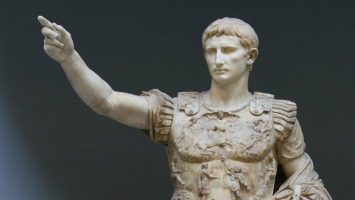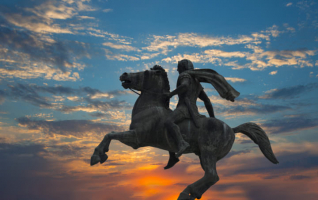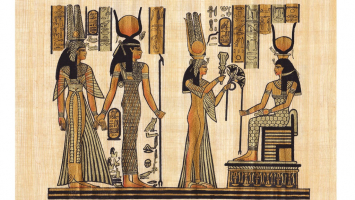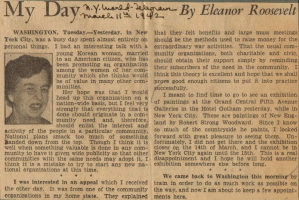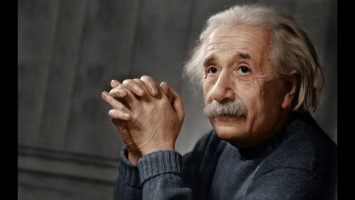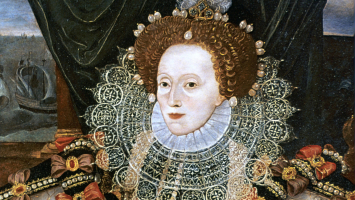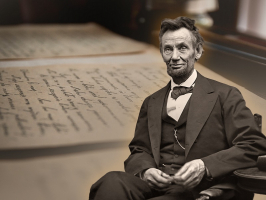Top 8 Major Accomplishments of Julius Caesar
Gaius Julius Caesar (100 BC – 44 BC) was a Roman commander and statesman who was one of ancient Rome's most famous personalities. Toplist shall honor the major ... read more...accomplishments of Julius Caesar. We hope you appreciate the list.
-
Hard to believe, Julius Caesar rose through the ranks to become consul of Rome in 59 BC.
Julius Caesar was born on July 12 or 13, 100 BC, in Rome, into the famous Julian line. His family had strong ties to the Marian group in Roman politics. Caesar advanced through the Roman political system, becoming quaestor, aedile, and praetor in succession. He was governor of the Roman province of Spain from 61 to 60 BC. Back in Rome in 60, Caesar struck a deal with Pompey and Crassus, who assisted him in being elected consul for 59 BC. The next year, he was named governor of Roman Gaul, where he served for eight years, adding modern France and Belgium to the Roman empire and protecting Rome from Gallic attacks. In 55 BC and 54 BC, he led two voyages to Britain.
He is regarded as one of the greatest military commanders in history, having won multiple campaigns, the most notable of which was his conquest of Gaul. Caesar climbed up the political ranks to unofficially control Rome as part of the First Triumvirate, and then to become the most powerful man in the Roman Republic, with the title of dictator in perpetuity. During his reign as Rome's sole ruler, he instituted several significant reforms, including steps to alleviate poverty.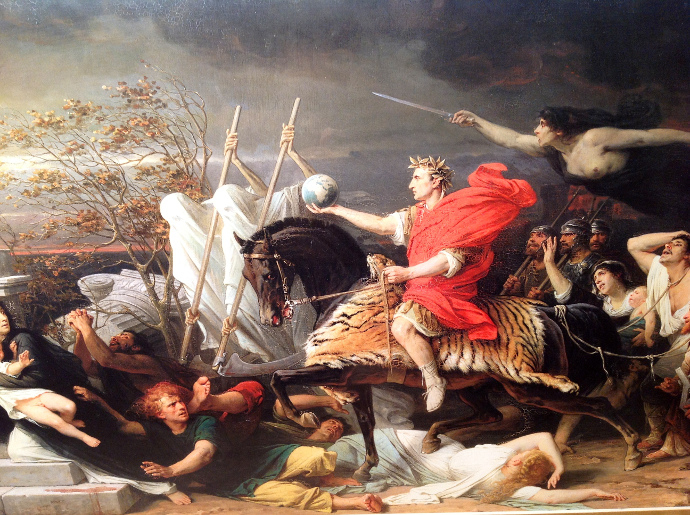
Photo: Julius Caesar at the Height of His Power 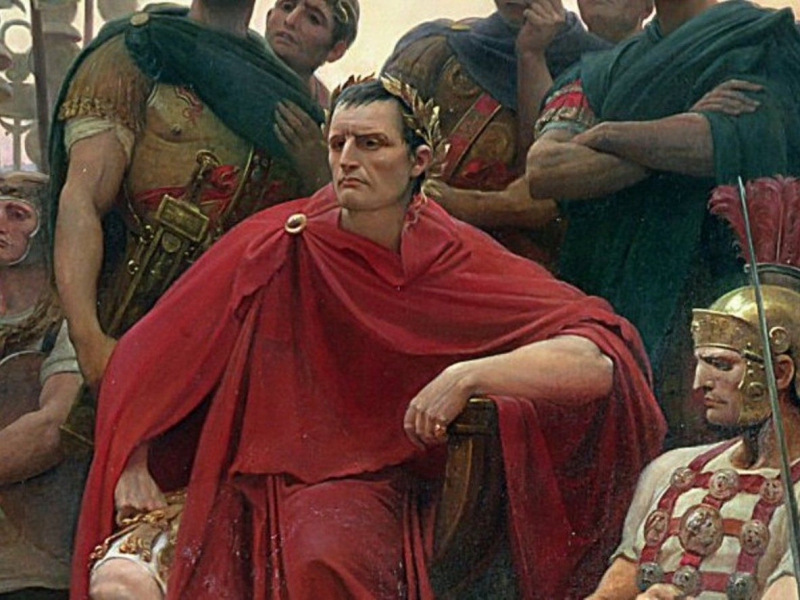
Photo: Julius Caesar and the Battle of Munda -
Julius Caesar's conquest of Gaul was significant for Rome and for a man on the rise. The geographical gains alone in his eight years of Gallic Wars were immense, driving Rome off of the Italian peninsula and establishing a long-term boundary at the Rhine. Gaul (approximately modern-day France and Belgium) was a lucrative prize for a growing empire. Some of its tribes were already commercial or diplomatic partners, and were cultured and sophisticated by Roman standards.
When Caesar ventured out into Gaul, he may have been preoccupied with his poor personal finances. He returned with the prestige, personal authority, and military force to win a civil war that elevated him to the position of Rome's most powerful man.
Despite its importance in Caesar's career and Roman history, this feat has been overstated in the Western tradition (as have his brief raids on Britain). In Caesar's thinking, his conquest of Gaul was most likely simply a means to an end. He was amassing the military personnel, pillage, and reputation required to obtain a free hand in the work of restructuring the Roman state and the rest of the Greco-Roman world. When seen in the broader context of world history, rather than merely the narrower context of the Greco-Roman civilisation's current daughter culture in the West, Caesar's final achievement looms far larger than his conquest of Gaul.
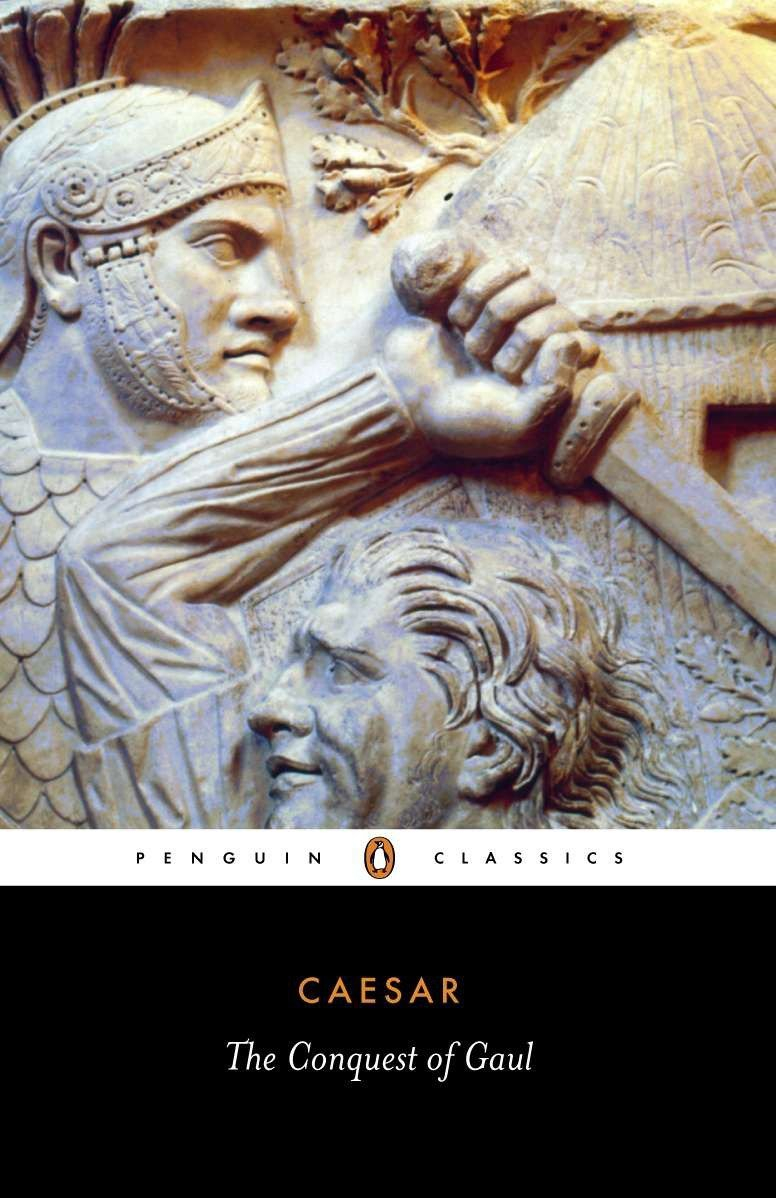
Photo: The Conquest of Gaul 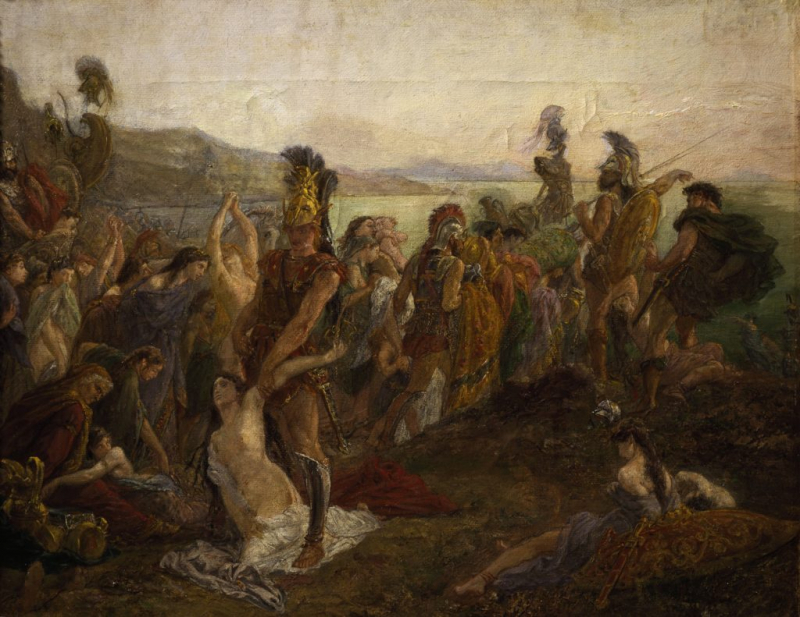
Photo: Julius Caesar's Triumph in Gaul -
At the time, Julius Caesar was the most powerful man in Rome. He terminated the Roman Republic by having the Senate declare him the dictator of Rome. Marcus Antonious, his cousin, became his right-hand man after his death. Marcus Aemilius Lepidus, Caesar's buddy, and Caesar's nephew, Gaius Octavius Thurinus. They lied in order to defeat Brutus and Cassius' army in the Battle of Philippi in 42 BCE. Antony and Octavian assassinated Caesar's buddy Lepidus (Had an agreement of territory.) They lost the Battle of Actium in 31 BCE after Anthony married a lady. As a result, they both committed suicide. The Senate then bestowed additional extraordinary powers to Octavian, who assumed the name Augustus and became Rome's first emperor.
Pompey allied himself with the Rome senate and resisted Caesar when the First Triumvirate ended with Crassus' death in 53 BC. This sparked the Great Rome Civil War (49–45 BC), in which Caesar eventually beat Pompey and his Senate supporters to become Rome's unchallenged ruler. A dictator was a position in the Rome Republic that was given broad powers, usually in times of emergency. Caesar became dictator for the first time in 49 BC. Caesar was named dictator perpetuo in 44 BC, after crushing the remaining opposition of Pompey's allies (dictator in perpetuity). He also held tribunician power indefinitely, preventing the other tribunes from interfering with his acts.
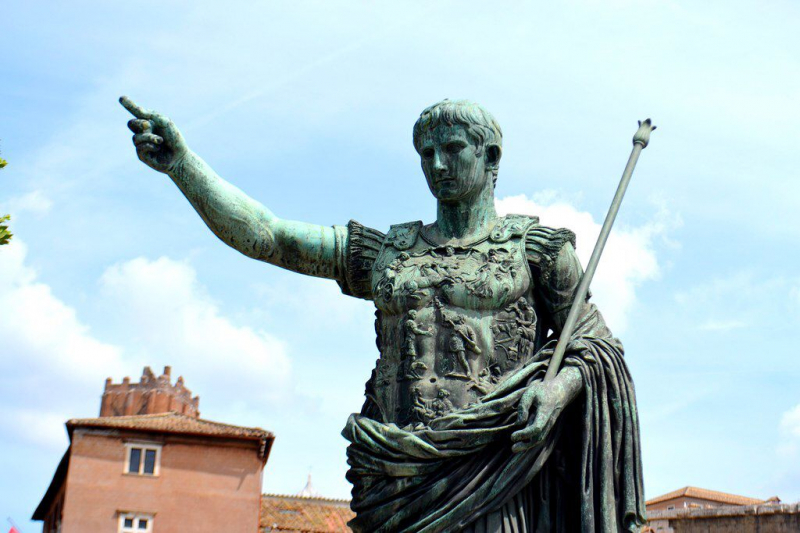
Photo: Julius Caesar-the most powerful man in Rome 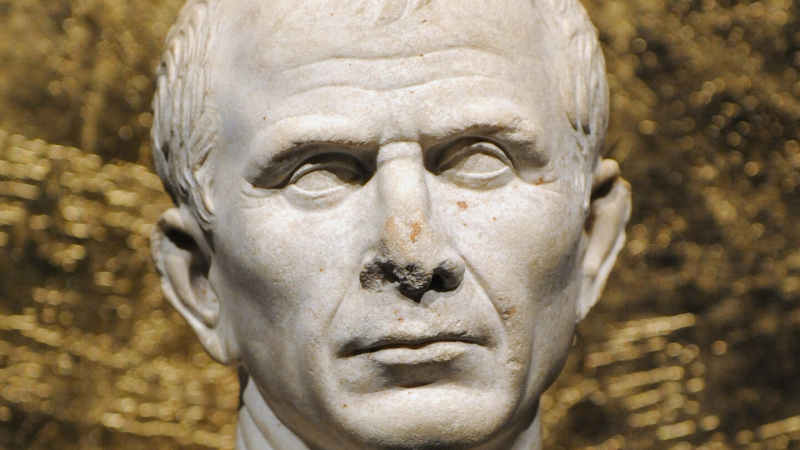
Photo: Julius Caesar -
One of the major accomplishments of Julius Caesar is he changed the local government.
Julius Caesar was a remarkable Roman Empire hero. He instituted several changes to benefit his inhabitants and the empire. He reformed the local administration to make it more efficient, granted citizenship to immigrants, and was a very friendly leader to both his countrymen and his opponents. To begin, Julius Caesar altered the Roman Empire's municipal governance. He modified it to make it operate more efficiently. He significantly increased the size of the Senate. The Senate had just 300 members when he assumed office and was increased to 900 members in order to function more efficiently. He implemented a slew of further changes to enhance the Empire, but enhancing local administration helped the Empire to operate more smoothly.
Julius Caesar established the Roman Empire by further extending the territories Rome had. The Roman Empire was modest before to Julius Caesar's accession to the throne, but after Julius Caesar took over, Rome expanded dramatically. The conquest of Gaul, or the Gallic Wars, was the first expansion because once Caesar became ruler of Gaul, all of that land became affiliated with Rome. With this expansion, Rome was becoming a very significant country.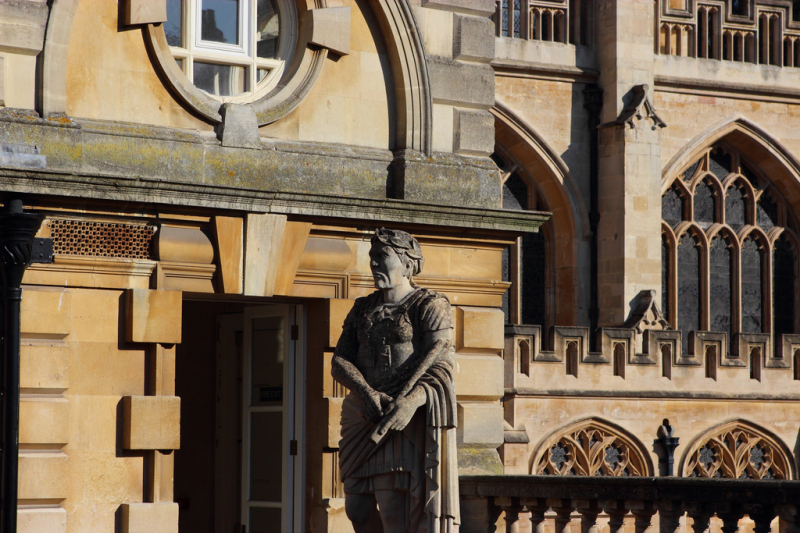
Photo: Statue of Julius Caesar in Bath 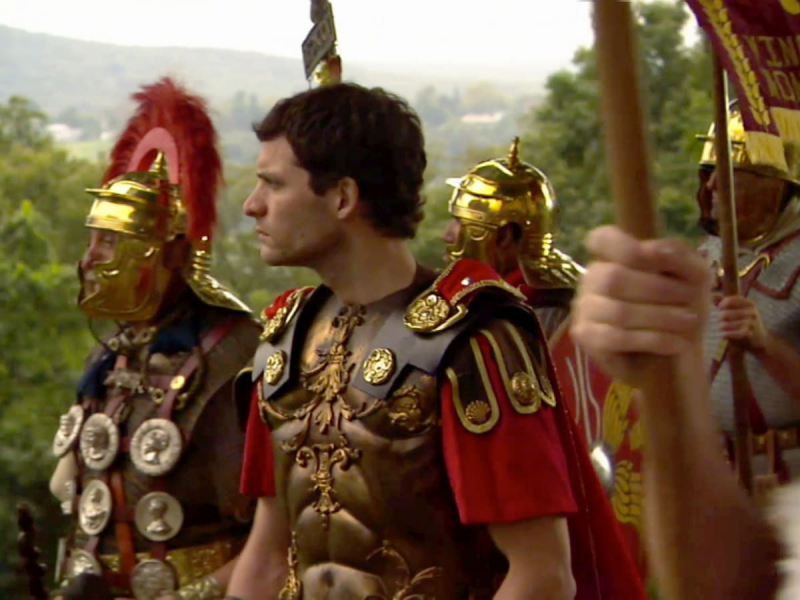
Photo: Julius Caesar -
Julius Caesar's military career began at the Siege of Mytilene (81 BC), where he was awarded the Civic Crown, the second highest military medal for a citizen. During the Gallic Wars, he invaded Britain twice and established a Rome-friendly ruler. During the Great Roman Civil War (49–45 BC), he fought multiple battles against Pompey and the Roman Senate. Despite being outnumbered 2:1, he famously beat Pompey, who was also noted for his military prowess, at the crucial Battle of Pharsalus (48 BC). Apart from defeating numerically superior opponents in the civil war, Caesar also conquered Egyptian monarch Ptolemy XIII at the Battle of the Nile (47 BC) and placed Cleopatra as Queen of Egypt.
Caesar was a skilled novelist, historian, and statesman, and much of his life is known from his own chronicles of his military battles. Other contemporary sources include Cicero's letters and speeches, as well as Sallust's historical writings. For his exploits, Julius Caesar is considered one of the greatest military commanders in history. His cognomen became a synonym for "Emperor"; the title "Caesar" was used across the Roman Empire, giving birth to contemporary cognates like Kaiser and Tsar. He has appeared frequently in literary and artistic works, and his political doctrine, known as Caesarism, has influenced politicians into the contemporary period.
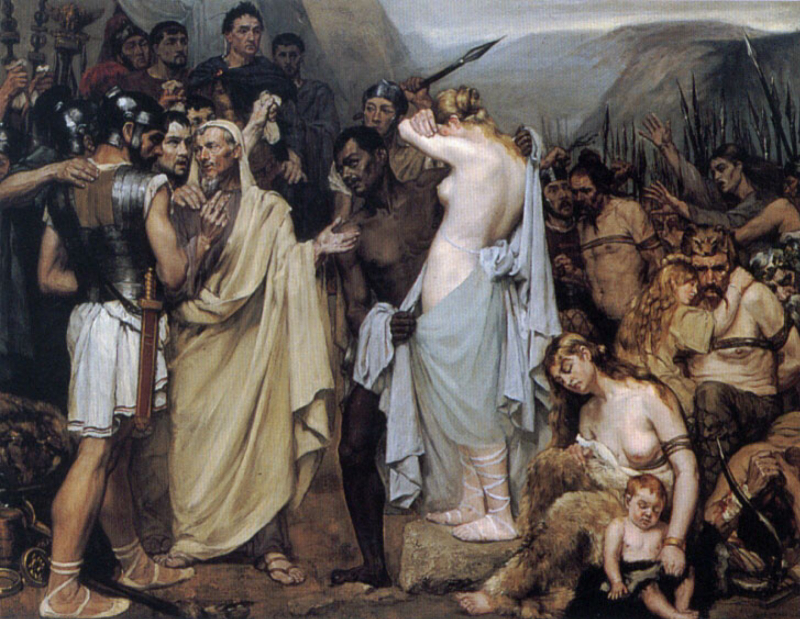
Photo: Arthive The Victory Of Julius Caesar by Louis Van Engelen 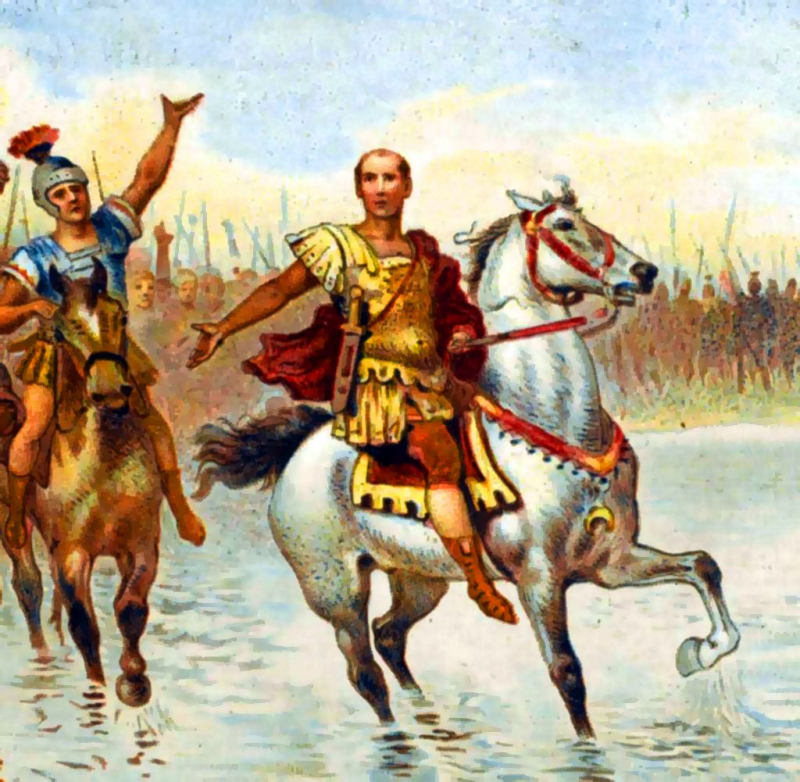
Photo: Julius Caesar crossing the Rubicon river and change the Roman republic forever -
The Roman calendar's regular year comprised of 12 months, for a total of 355 days. In some years, a 13th intercalary month of 27 or 28 days was added to make the calendar correspond to the seasons. The Roman calendar was not only imprecise, but it was also manipulated for political reasons, with intercalations happening haphazardly. Julius Caesar replaced it with a calendar based on the Egyptian calendar, which was governed by the sun. He made the year 365.25 days long by adding an intercalary day at the end of February every fourth year. The Julian calendar began on January 1, 45 BC, and it remained the dominant calendar in much of Europe until the Gregorian calendar, the most frequently used in today's globe, somewhat modified it by making a 0.002 percent adjustment in the length of the year.
The Christian world is also familiar with Caesar's gens (clan) name, Julius (Iulius), because the Roman month Quintilis, in which he was born, was renamed "July" in his honor during Caesar's lifetime. This name has persisted, as has Caesar’s reform of the calendar. The old Roman calendar was incorrect and modified for political reasons. Caesar's calendar, the Julian calendar, is still in use in some Eastern Orthodox Christian countries, and the Gregorian calendar, which is currently used in the West, is the Julian calendar, significantly revised by Pope Gregory XIII.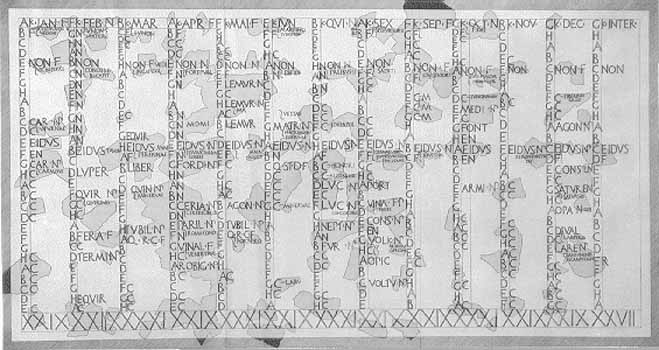
Photo: Caesar's Calendar reform Video: Roman calendar -
Carthage was the ancient Carthaginian civilization's capital city. During the Third Punic War in 146 BC, the Roman Republic destroyed the old city. Julius Caesar established a new city of Carthage in the same area between 49 and 44 BC.
The Roman colony of Corinth, Colonia Laus Iulia Corinthiensis, was founded by Julius Caesar in 44 B.C. on top of the previous Greek city that had been demolished by the Roman consul Lucius Mummius in 146 B.C. For 102 years, the location was virtually unoccupied. According to literary sources, the Greek male population was massacred, while women and children were sold into slavery.
The ancient cities of Carthage and Corinth were rebuilt on his orders is also one of the major accomplishments of Julius Caesar. Julius Caesar came home in October, revealing himself to be a restless reformer. The Roman crowd had received free grain doles, which Caesar cut from 322,000 to 150,000 beneficiaries. The destitute were promised a new life in Spain, where he reconstructed cities like Carthage and Corinth and established new towns like Arles and Seville. In Asia Minor and Sicily, he instituted a new taxing system that safeguarded the people from extortion. Many building projects were completed under Caesar's reign, notably the famed Forum of Caesar with its Temple of Venus Genetrix.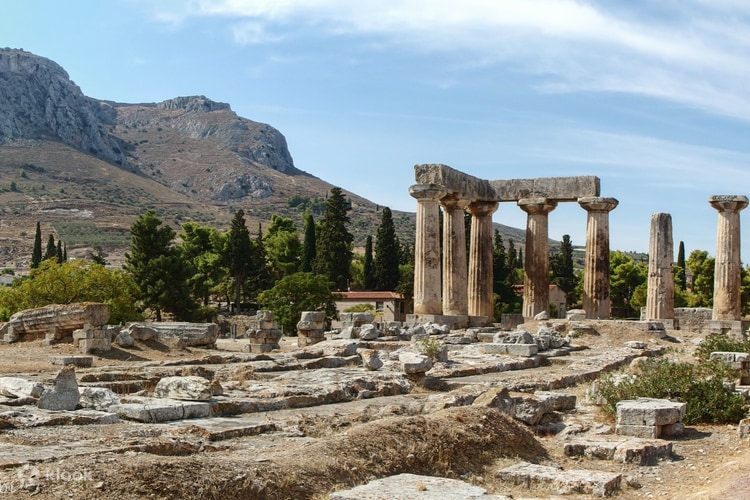
Photo: Corinth 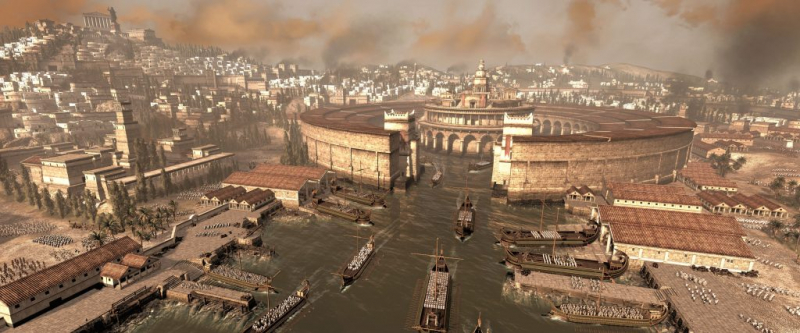
Photo: Carthage -
Julius Caesar had a number of important effects on Rome during his dictatorship from 49 to 44 BC. He took steps to mitigate the financial crisis in Rome. One of the first issues Caesar faced was enormous debt in Rome, particularly following the onset of civil war, when lenders sought repayment of loans and real estate values plummeted. As a result, there was a severe scarcity of currency in circulation, as individuals hoarded anything they could get their hands on. Land values declined, making it more difficult for borrowers to sell their property to repay their loans; consequently, in effort to stimulate the property market, a legislation was introduced forcing senators to invest 2/ 3 of their wealth in real estate located on the Italian peninsula.
Recognizing the gravity of the situation, Caesar directed that the property be taken for repayment at its pre-war worth. He also reintroduced a former legislation that prohibited any single individual from possessing more than 60,000 sesterces in cash. Caesar later annulled all outstanding interest payments dating back to 49 BC and allowed renters to pay no rent for a year. While these methods did not completely eradicate Rome's debt, Caesar's innovative approach helped to reduce the load in a way that satisfied both lenders and debtors.
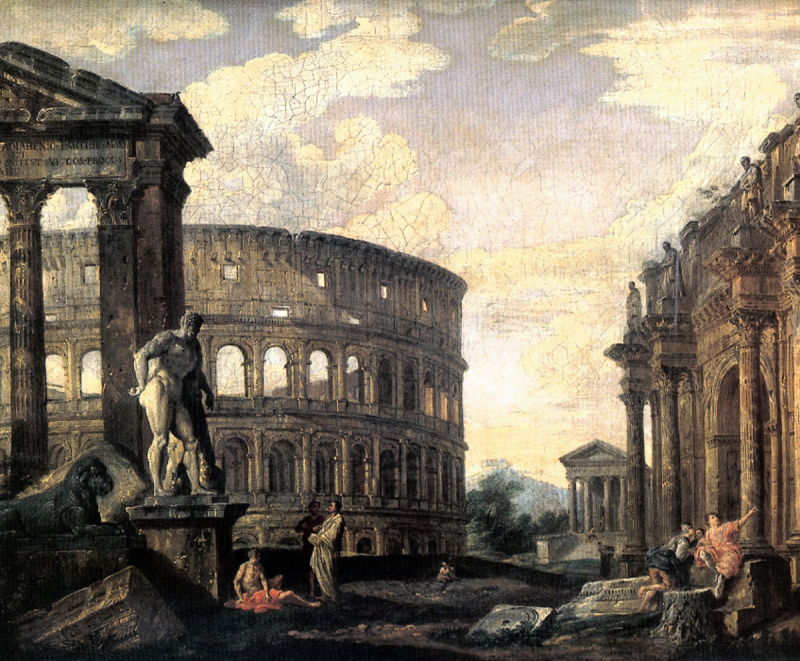
Photo: Rome 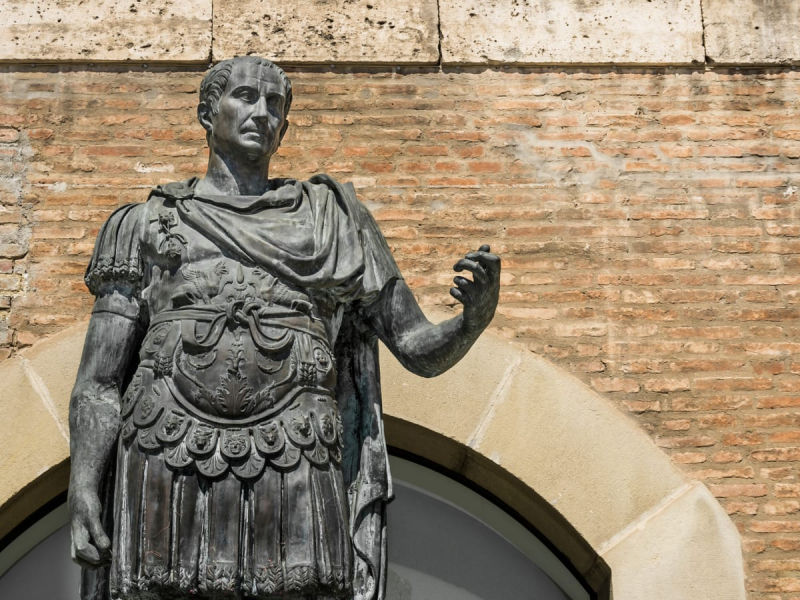
Photo: Julius Caesar










